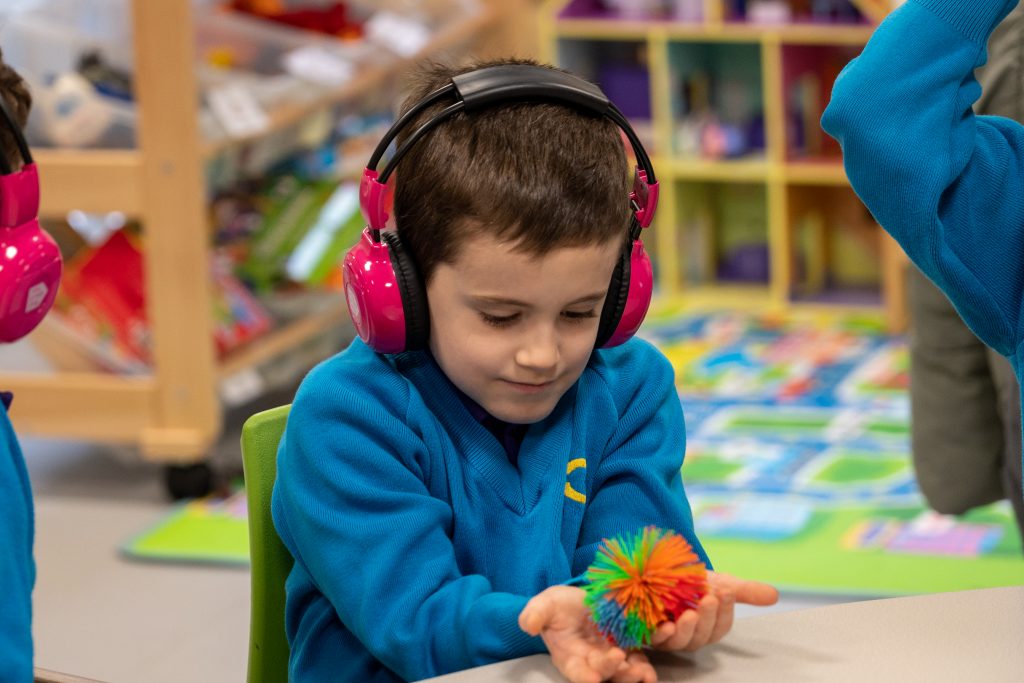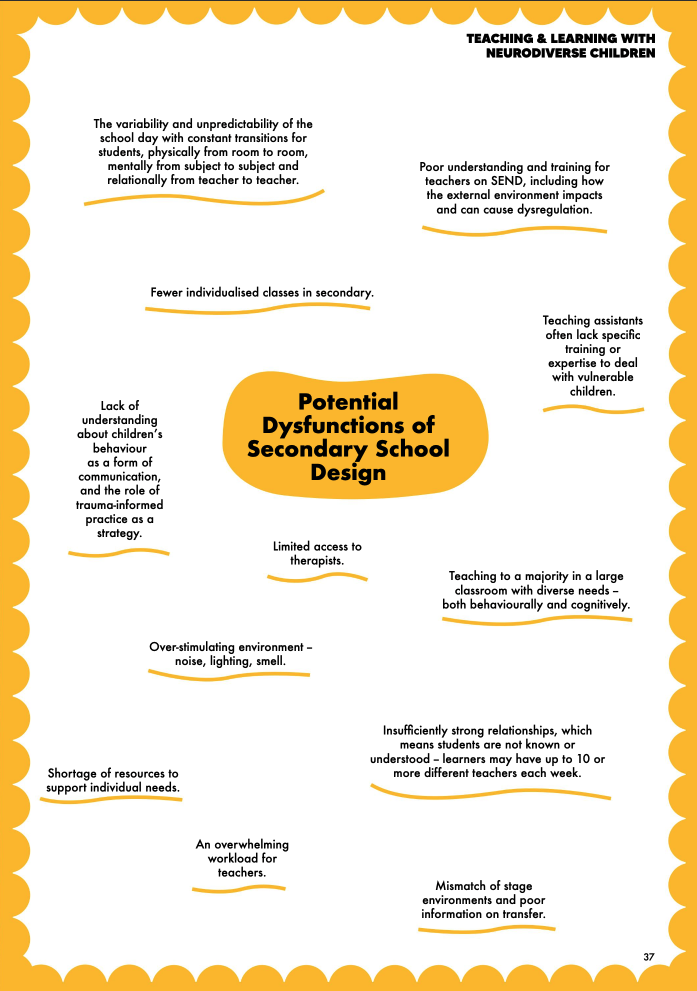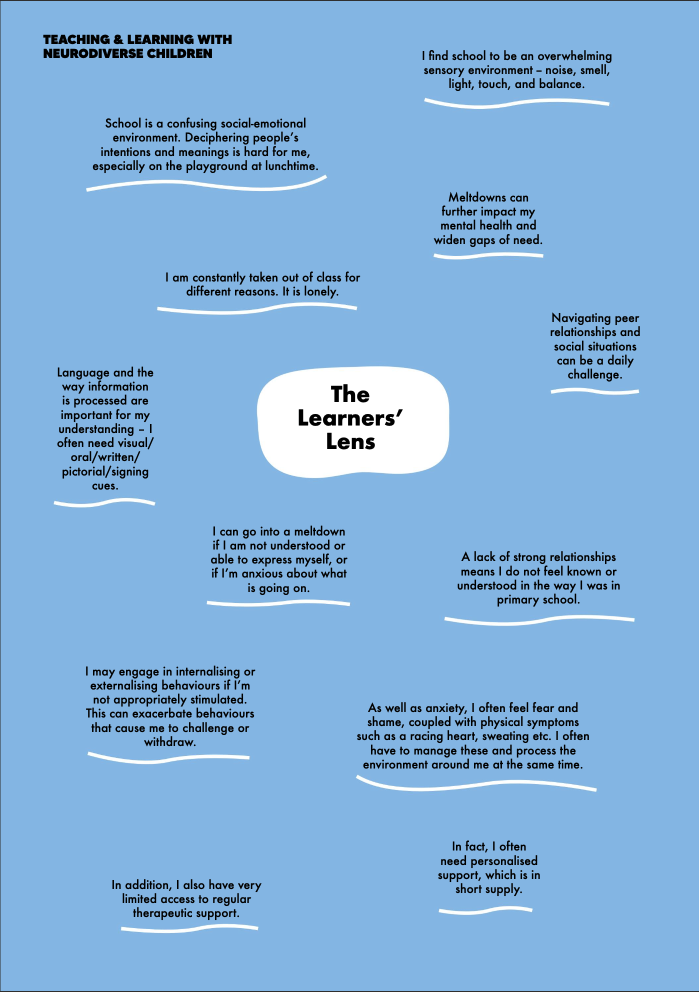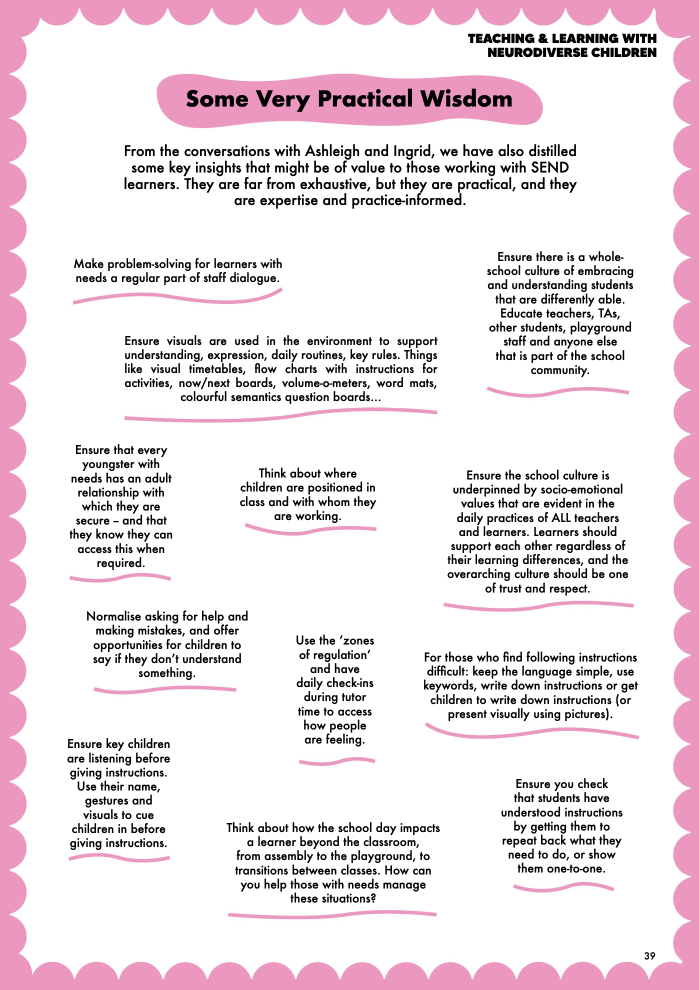Why is School a Tough Place for Neurodiverse Children?
Ali Durban

A Short Reflection on Bravery
If all schools were judged by the provision they make for their most vulnerable learners (which feels not to be an unreasonable measure) it could be that there would be more “inadequate” judgements than there are currently. For some learners attendance at school requires reserves of courage.
Bravery is not a word that we would want to define any child or young person’s daily experience of school. After all, school is meant to be a place of safety, fulfilment, and positive relationships, yet for thousands of differently abled children and young people, navigating their normal school day is challenging, complex, damaging even, and bravery is a daily necessity of survival. In his recent book ‘The Inclusion Illusion’, Dr Rob Webster highlights the everyday experience of students with SEND in mainstream school as being characterised by separation and segregation.
School is meant to be a place of safety, fulfilment, and positive relationships, yet for thousands of differently abled children and young people, navigating their normal school day is challenging, complex, damaging even.
‘There are structures and processes ingrained within these settings that serve to exclude and marginalise them (children and young people). The arrangements that led to this might be defendable if they were necessary for creating an effective pedagogical experience. Yet the evidence… suggests that, if anything, they result in a less effective pedagogical experience.’
The Policy Context
Over 1.4 million children in Britain are reported to have some sort of special educational need and we all know that the unassessed number is probably much larger. Three-quarters of these (about 1.1 million) are on SEND support and 365,000 have an Education, Health and Care Plan (EHCP). The current SEND Green Paper talks about ‘a clear vision for a more inclusive system’ but gives no real sense of how it will be achieved. To put this inclusive thinking into context, following a consultation on behaviour management policies and exclusion, the Department for Education appointed a “behaviour tsar” to create “behaviour hubs”. Guidance also referred to the use of “removal rooms” in schools as a punishment and to the use of managed moves as an early intervention measure for pupils at risk of exclusion. To be clear, the children and young people most impacted by these measures are the most vulnerable in society. Mostly they are those with SEND.
The Government (and constant merry-go-round of Education Ministers) continues to wrestle with inclusion and SEND system reform, with no clear approach to system transformation in sight. For this article, we set aside the complexities of system change and instead take a grassroots-level deep dive into exactly why life in mainstream education is so tough for differently abled students.
Introduction
Gesher’s Ashleigh Wolinsky, Speech and Language Therapist, and Ingrid Mitchell, Educational Psychologist, have extensive experience working with SEND learners. We asked them to share some insights drawn from that professional experience. It will not be a shock to readers to learn that SEND identification, poor resources, and assessment and diagnosis delays are some of the consistent features.
However, with that as background we have extracted from the interviews three further clusters of issues:
- Those that are endemic to ‘school’ — the way secondary school in particular works.
- Issues that are unique to the learner — the needs of a ‘differently able’ youngster.
- What we have called ‘wisdoms’ — some practical suggestions that may be of help.



End Note: This article is not a criticism of mainstream schools, nor of secondary schools in particular. Nor is it a eulogy for special school provision. Let’s be clear: we believe that both mainstream schools and special schools can do a great job for neurodiverse SEND youngsters — hence the insights and advice.
What we are also clear about, though, is that hundreds of young people across the country have a potentially damaging and unhappy experience of school and that there is knowledge about how things could be better. This piece is a small contribution to that, drawn from those with expertise.
Professional Prompt Questions
What most challenges your school’s SEND practices in this article?
Are there things in the ‘practical wisdoms’ section that your school might like to adopt?
Might it be of value to your school to create a Learners’ Lens of insights from your neurodiverse children?

